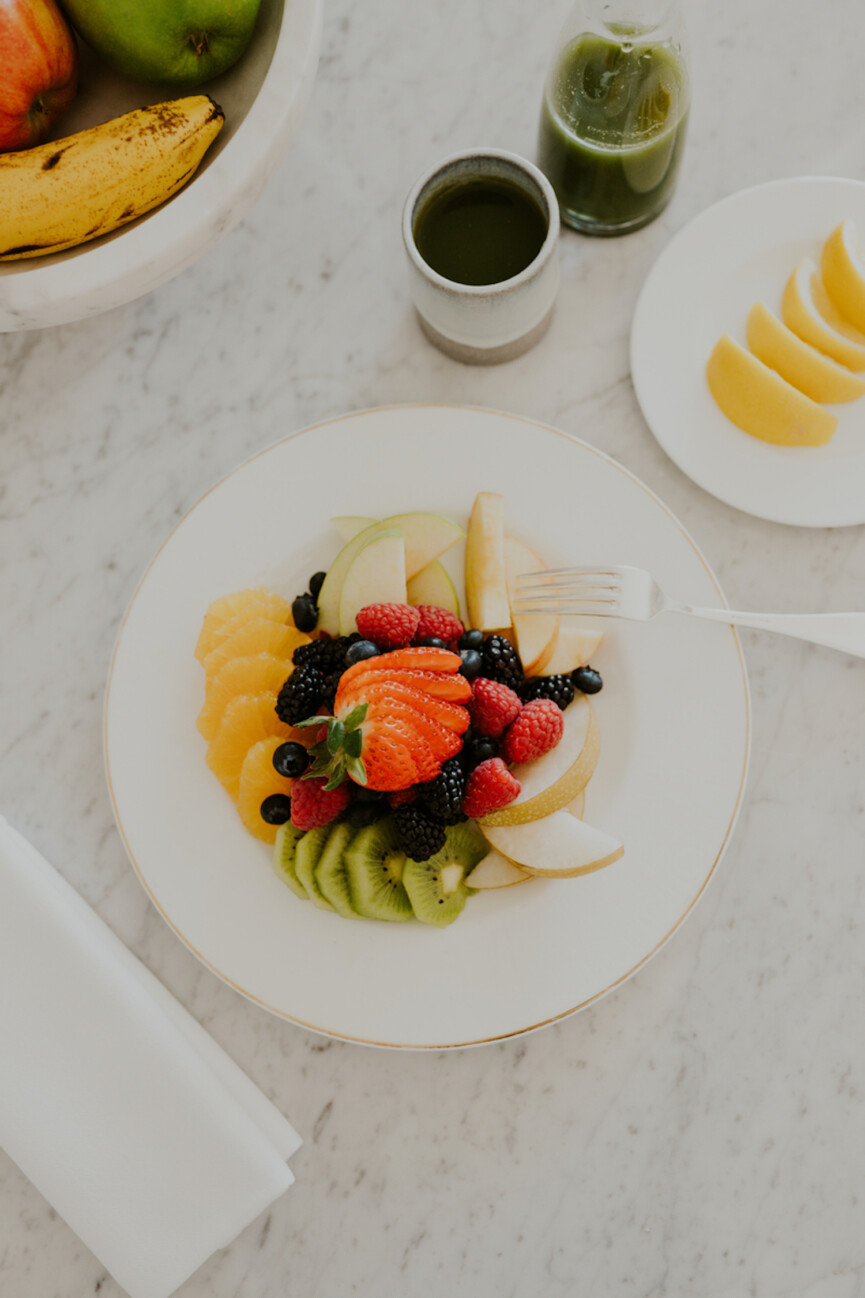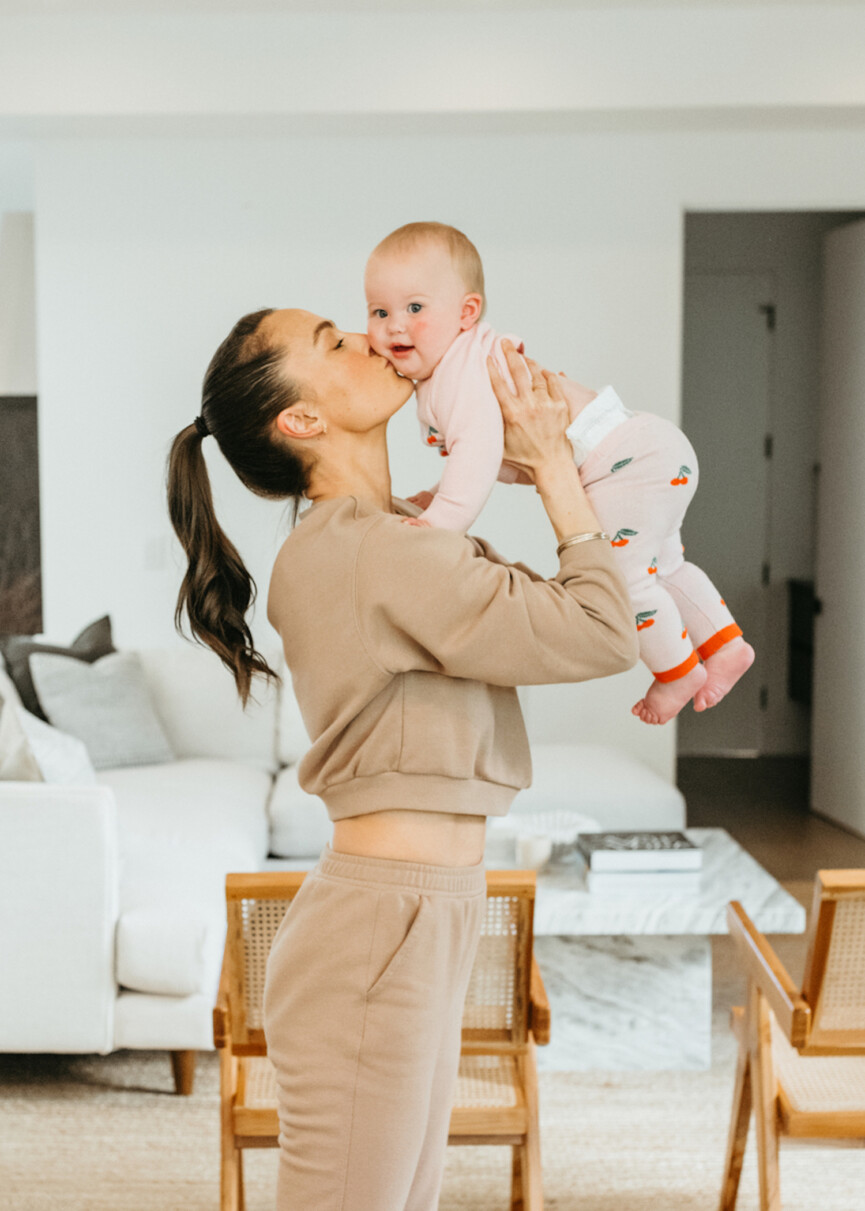I’ve always been attuned to asking why things happen. It’s a human impulse—trying to derive meaning from life’s mysteries. But as I’ve grown older, a bit wiser and with more experience, I’ve come to learn that some questions are without answer. It can be devastating to accept that what’s happening to you is the result of a cause you may never realize. As many women are experiencing in recent years, one of those things is autoimmune infertility.
Thankfully, there are those who will go to any length for answers. As someone who’s experienced her own ups and downs in regards to her reproductive health, I’m empathetic to the countless women who have confronted those challenges as well. It’s because of that, I’m grateful for the work of Caryn Johnson, the co-founder and CEO of BOND, an innovative line of supplements reimagining reproductive wellness. And as is true for many female founders, the brand was born through Johnson’s experience with what BOND addresses: women’s hormone health.
I’ll admit, before Johnson and I spoke over matcha chai lattes at The Hoxton in Chicago on a Friday afternoon several weeks back, I knew little about what autoimmune infertility entailed. And unfortunately, it’s because of that ignorance—the result of research only just emerging on the topic—that Johnson had to seek the answers herself. What resulted is not only the births of her two children, Elijah and Ruthie, but also the birth of BOND. Through targeted supplements and education-centric content, the brand is transforming our understanding of our bodies, our lives, and our world.
How One Entrepreneur’s Journey With Autoimmune Infertility Inspired a Brand
Johnson is no stranger to the supplement world. As an industry that’s experiencing the saturation that many buzzy product spaces are seeing, it can be difficult to differentiate yourself from what else is on the market. But it’s her experience—Johnson is the former Vital Proteins Chief Marketing Officer—combined with her personal stake in what the product addresses, that’s led not only to a captivating founding narrative, but an effective product line that yes, is changing lives.
Ahead, Johnson and I discuss the ins and outs of autoimmune fertility, diving deep into her personal journey, BOND’s beginnings, and what women can do to proactively address these concerns head-on.
Caryn Johnson
Caryn Johnson is the Co-Founder and CEO of BOND, an innovative line of supplements reimagining hormone and reproductive health, inspired by her experience with infertility. The former Vital Proteins Chief Marketing Officer launched BOND in the Fall of 2023, fusing her professional expertise with her passion to help women take a more proactive and empowered approach to caring for their cycle and reproductive health.
What is autoimmune infertility?
“With traditional infertility, you’re looking at your reproductive system as the cause or place of the infertility,” Johnson tells me. “But with autoimmune infertility, it impacts your immune system in a way that’s separate from your reproductive health.” It’s a key distinction, as it not only differentiates the two types of infertility, but also points to the enigmas that exist in addressing the root of what’s holding us back from the lives we aim to lead and create.
Johnson expands on this. “With fertility in general, your body needs to be in a space where it can immunomodulate to its environment. In getting pregnant, your body goes through a semi-allogenic learning with the blastocyst (the early-stage embryo), meaning it has to accept it through a series of immune reactions and responses in your body. Many of those immune responses are new to your system through that specific phase of life.”
But complications can arise when your immune system is unable to tolerate those changes—and when it can’t support you through your fertility journey. “What happens, and what happened in my case,” says Johnson, “is that my immune system triggered my body to shut down the pregnancies. It accepted them as foreign instead of going through the proper immune responses to get pregnant and sustain that pregnancy.”
In essence, autoimmune infertility takes into account “two different systems of your body,” she notes, “looking at how they work together for your body to conceive and carry a pregnancy.”

Johnson’s Personal Journey With Autoimmune Infertility
“I couldn’t get pregnant at all,” Johnson reflects. “But when we started with the IUIs and IVFs, those went well. My body performed well.” She tells me she bad no blocked fallopian tubes and providers confirmed that her reproductive systems were in order. It’s at that point, she notes, when an OBGYN or reproductive endocrinologist will be at a loss—unable to identify a cause. “My IVY cycles were failing and no one knew why. So I had to figure things out on my own.”
This was back in 2017, when the conversation surrounding women’s reproductive health was all the more limited. Searching for answers herself, Johnson picked up the book Is Your Body Baby-Friendly? by Dr. Alan Beer.
She poured over its pages, learning that the root of her issues laid somewhere in her digestive system. “Hormonally, I was a wreck, but I didn’t know to associate it with what I was experiencing in my fertility journey.” Ad hoc research led her to connect with a local doctor who practiced reproductive immunology. After a months-long waitlist, bloodwork, and a full ultrasound, Johnson was told she had the highest level of antibodies in her blood the physician had ever seen.
“Thankfully, they knew how to address it.”
“Practically, my best advice is to care about your body, your hormones, and your reproductive system whether you care about having a baby or not in this moment.”
Finding Answers
Though the doctors encouraged Johnson to cancel her IVF, she was already medicated and prepared for the next round. “I ended up getting pregnant with twins. I lost my daughter at eight weeks and carried my son to 35 weeks. He’s now five.
“I went on to lose another baby after him, and that’s when we threw in the towel,” she reflects. “Ruth, my second daughter, is born by surrogate, which was ultimately a decision we made to protect our mental health. When Ruth got here, I felt that I had everything. I had learned everything, but there’s still this world that’s unknown to a lot of women.”

What advice would you share with other women experiencing unknown or autoimmune infertility?
“Practically, my best advice is to care about your body, your hormones, and your reproductive system whether you’re planning to have a baby or not in this moment.”
While there still can be factors beyond your control, Johnson affirms that education and exposure to aligned tools and resources can effectively support your reproductive health. As the conversation shifts and expands to welcome a broader understanding of women’s bodies, it’s important that we see proactive reproductive care as more holistic than in the past.
“Doing that now for yourself will support your daily cycle in a way that you probably haven’t experienced or been enlightened to. There’s a real beauty in trying to educate younger women and opening their eyes to this.”
How BOND Came to Be
Given Johnson’s experience with autoimmune infertility, she was able to witness the gap between the research and what doctors could address in their patients. “I wanted to help bridge that gap and get people to understand these factors in their fertility a little faster,” she shares. “And that’s where the excitement for the brand started.”
Through hands-on research, physician consults, and her experience at Vital Proteins, Johnson was able to take the product line to market, launching BOND in 2023. Ultimately, her intention is to provide a selection of effective and accessible supplements for anyone with a reproductive cycle—not just those trying to conceive.

Lifestyle Habits to Support Hormone Health
Though Johnson’s passion for reproductive and hormone health became obvious within seconds of meeting her, it’s a consistency that’s carried all throughout our conversation. Through her work with BOND and personal research and advocacy, she’s transforming the narrative surrounding our menstrual cycles. Rather than being a source of shame, Johnson is celebrating the many different ways our bodies interact with the world.
And alongside supplementation, lifestyle factors play a key role in promoting hormone balance. Johnson’s number one tip? Chart your cycle. This helps you understand how to best support your body by opting for certain foods and forms of movement, and even shifting your social calendar to align with where you fall in your cycle. “It’s about creating balance where your body needs it,” says Johnson, “allowing your body to reset without guilt.” We created a comprehensive guide to cycle syncing to help you get started.
Adding to that, protein is essential. “Make sure you’re consuming enough protein. Satiation and not over-sugaring yourself—particularly on an empty stomach—is key for hormone health,” she underscores. Curious how much protein you need? Consult our nutritionist-backed guide. For recipes, we have breakfast, dinner, snacks, and even budget meals in abundance.
Ultimately, Johnson concludes, it’s about gaining a deeper understanding of your internal system. Determine what supports you best, and let the resulting benefits lead the way.








